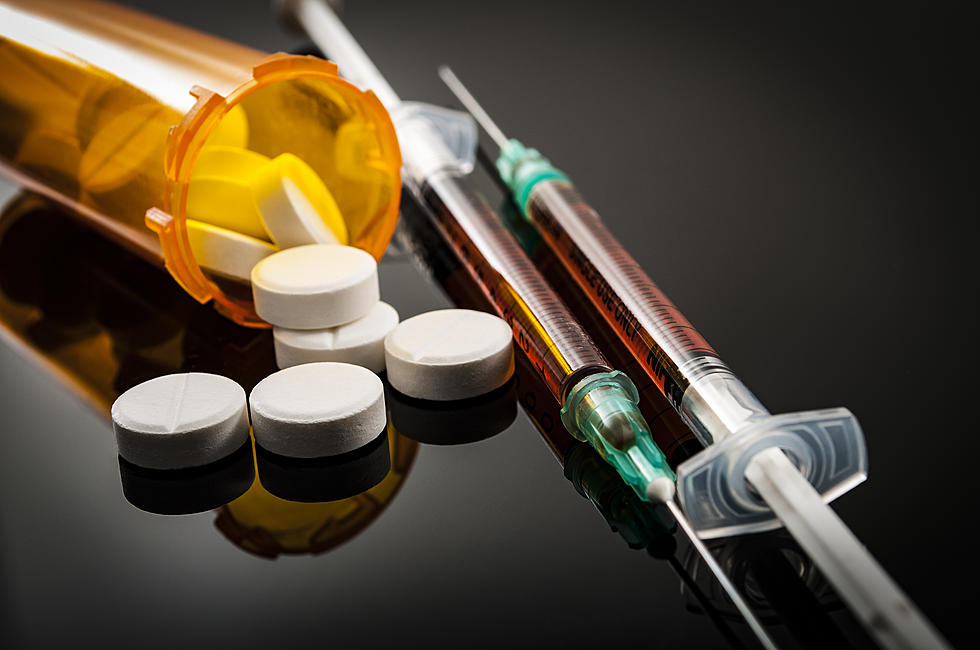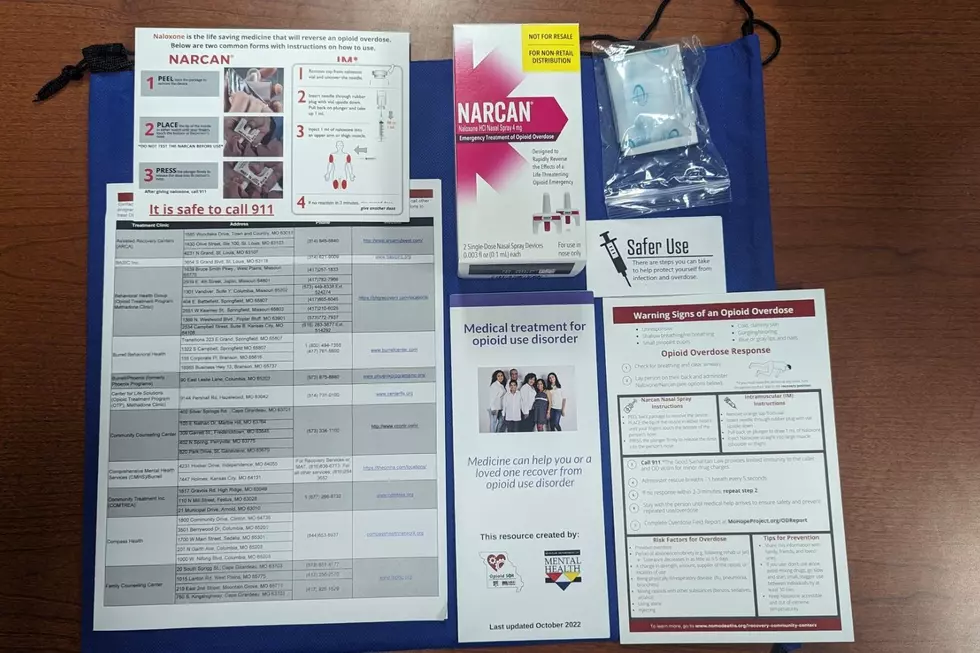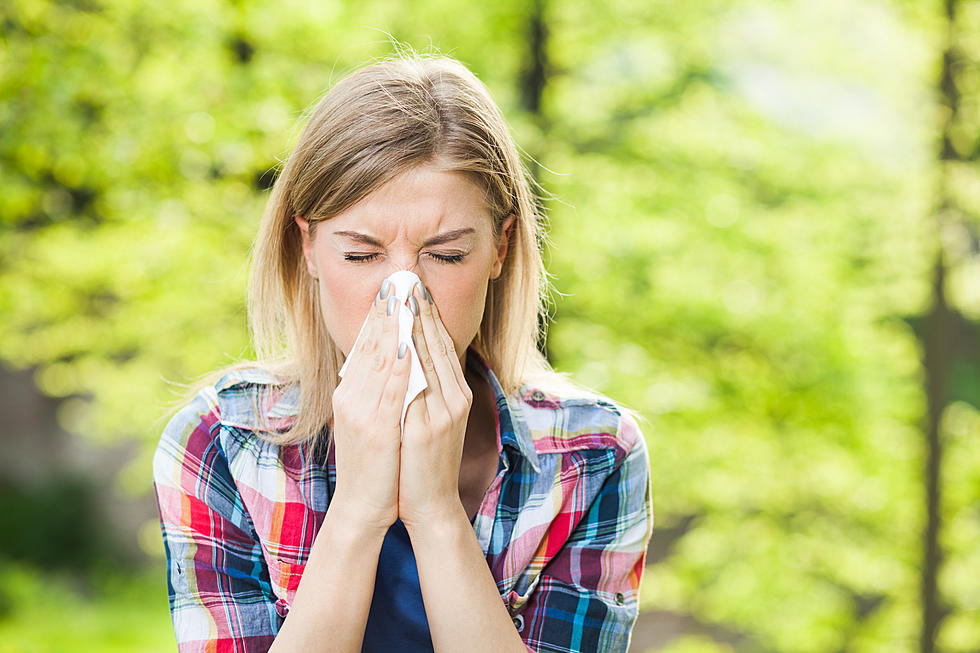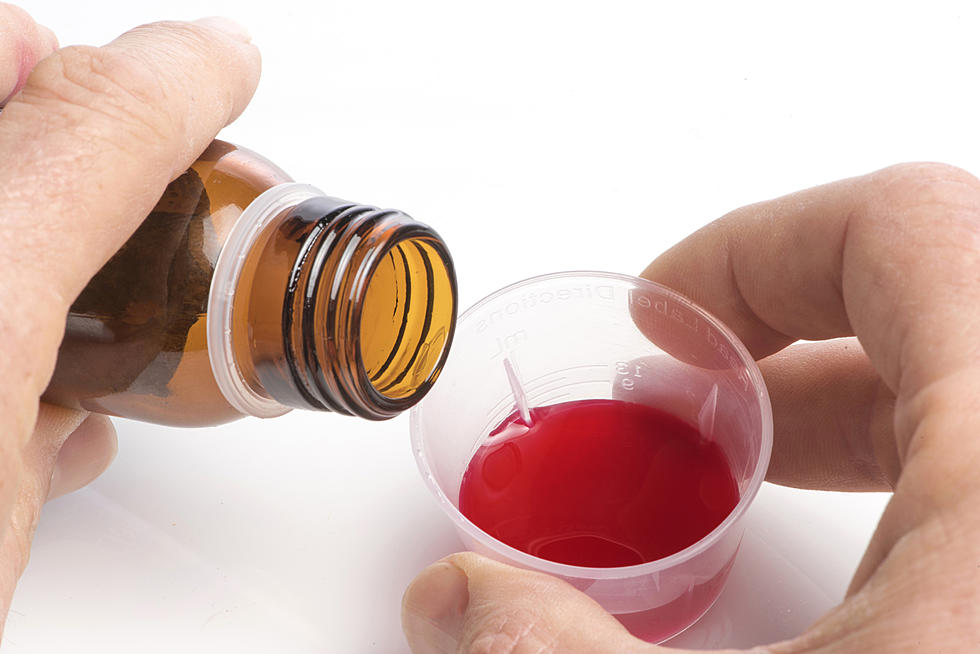
Narcan: What It Is, What It Does, And Should You Keep Some Stocked?
I'm sure everyone knows someone who has been effected by drug addiction in some way or another. You've heard all about how bad the problem is in West Central Missouri. Either you, someone you know, or someone you work with could have been addicted to Opioids at some point.
Heck, you might not have even been directly touched by this, but know your neighbor had "Salt" written on their garage or something in spray paint. And you've heard stories. Whether it was either that you knew someone who took too many pain pills accidentally that one time, or someone who has overdosed on narcotics... the entire experience can be extremely stressful. It affects the whole family, as well as the community.

Being prepared is a great way to lift that pressure off your mind, and also can save lives. How can you prepare? One way you might is by keeping some doses of NARCAN handy either on your person, or with a station at your workplace or organization. It's a big responsibility, so let's unpack it. That's what we'll talk about today.
Let's answer the first question you have. Just what is NARCAN? You've read that name in the Police Reports, I'm sure. Maybe you've seen it on TV. You probably think it's something that only paramedics and cops have access to, and you wouldn't be crazy to think that.
Firstly, what exactly is it? NARCAN (the brand name), or Naloxone, is an opioid antagonist. That means that it acts to stop opioids in their tracks as they travel through your system. Here's a simple way to think about it from the experts at the University of Wisconsin:
Instead of counterbalancing symptoms like Epinephrine (EpiPen) to overcome the effects of an extreme allergic reaction, naloxone blocks the brain’s uptake of opioids by replacing them. Think of your brain cells like a toddler’s shape sorter toy — the one with the different shaped holes and blocks. Naloxone comes along and replaces the opioid. It can boot it out or fill the hole before the heroin comes along.
So while it's not magic, it can stop opioids from killing someone who is in the midst of an overdose. It comes in a pre-packaged, prepared dosage of either an injection or a nasal spray, but most agencies opt for the spray. Yeah, it's not perfect - it can cause side effects like sweating, nausea, vomiting, tremors, irritability, nervousness, aggressive behavior, body aches, fever, runny nose, and sneezing. But I know I'd rather deal with a cranky, sweaty relative than the alternative. And yes, even if you do use it on someone, you have to call 911 after, no matter what - even if they're awake and seem fine. The NARCAN will wear off at some point, and the opioids could take over their system again. It's obviously better for the person overdosing to be in the hands of medical professionals in case that happens.
Okay, so surely not everyone should carry this stuff with them, right? Maybe yes, maybe no. But you can, legally. Anyone can carry NARCAN (with a little training), and you don't need a prescription to get it. People who should especially consider carrying naloxone include: people who are currently taking high doses of prescription opioids for pain or are taking opioids along with alcohol and/or sedatives, or if you're living with or caring for someone who does. It's not going to hurt anyone if they use it without any opioids in their system. So if you mistake a heart attack or someone experiencing diabetic situation as an overdose, it won't hurt them at all. It won't help any, though, either.
So how do you know WHEN to use the NARCAN? Luckily, I have that answer for you right here from the CDC. If you suspect someone may have overdosed, but you're not sure, look for these signs:
- slowed or shallow breathing (or no breathing)
- pinpoint pupils (small, constricted pupils)
- falling asleep
- loss of consciousness
- choking or gurgling
- limp body
- skin that is pale, blue, and/or cold
After you use the nasal spray/injection, you should try to keep the person on their side to prevent choking (sometimes vomiting can happen, choking on vomit is avoidable), and try to keep them awake and talking until the paramedics get there.
Look. I know this isn't fun. This isn't something you really want to think about, ever. You want this to be something other people worry about. I absolutely get you have a thousand other things on your plate, and you want to just be able to ignore this.
But, please don't. And the thing is, I bet the people who need to do this know who they are. You don't want to keep it in case you need it, right? Like it's almost a self fulfilling prophecy? Well, not owning an umbrella never stopped it from raining. So, if you have someone in your life you're worried about, or if you have a group or a church or a meeting place and you think you might want to add NARCAN to your first aid kit, check with the Pettis County Health Center. They have some you can access for free. Now if you can't make it to them, you can click here or here. You just answer a few questions (nothing super invasive, so be honest - you are NOT speaking to Law Enforcement). Just stuff like, "is this for an individual or an agency or for community distribution", etc. They'll encourage you to get it from the PCHC first, obviously. Then they'll give you a quick tutorial about how to use the product, again, free, and they'll mail some to you.
Prevention is worth a pound of cure, right?
And in this case, it's worth someone's life. Think about it.
Precautionly yours,
Behka
LOOK: Counties with the Warmest Summers in Missouri
Gallery Credit: Stacker
More From Mix 92.3









